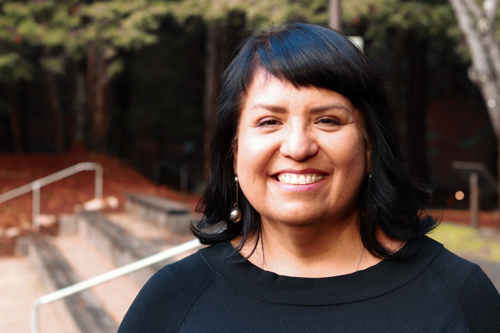Campus News
Milestone land acknowledgement event brings campus, local tribe and community members together
On Wednesday, April 12, the campus will host its first Land Acknowledgment event, recognizing the Amah Mutsun Tribal Band and its place in the local history of the land and the creation of UC Santa Cruz. The event will aim to answer the community’s questions about land acknowledgments, and the importance of such events moving forward.

As the University of California, Santa Cruz looks to expand its community reach, it also aims to harken back to the land’s rich history, and how that history has not been given its proper recognition.
On Wednesday, April 12, the campus will host its first Land Acknowledgment event, recognizing the Amah Mutsun Tribal Band and its place in the local history of the land and the creation of UC Santa Cruz. The event will aim to answer the community’s questions about land acknowledgments, and the importance of such events moving forward.
Hosted both online and in person beginning at 3 p.m. at Stevenson Event Center, UC Santa Cruz’s own Community Archivist Dr. Rebecca Hernandez will be joined by Amah Mutsun Tribal Band Chairman Valentin Lopez and tribal member Alexii Sigona to discuss more about the acknowledgement and the relationship between the two groups.
“I really wanted to give the opportunity to the tribe to speak for themselves,” said Hernandez. “They are the experts; they are the people who really should be talking about it and sharing about their history.”
Before taking on the role as the community archivist in January 2022, Hernandez was previously the director of the campus’s American Indian Resource Center. Through that role and others in the community — including her work with the Museum of Art and History board, the Latino Affairs Commission, and Rise Together through the Community Foundation Santa Cruz County — Hernandez has been at the forefront of relationship building, making her role all the more all-encompassing.
“Community archivists are very unique roles, not just on our campus but in general — they are a fairly new phenomenon,” she said. “Essentially our role is to interrogate and contemplate what archives are meant to be, why they were started, and determine how we can do a better job of collecting materials that reflect the community.”
Santa Cruz is a rich environment for that role, Hernandez explained. The land was “discovered” by Spanish explorer Don Gaspar de Portola in 1769, who named the San Lorenzo river in honor of Saint Lawrence and the rolling hills above the river Santa Cruz, to reflect the “holy cross.” Over the next 100 years, Santa Cruz garnered a mission, the Spanish pueblo of Villa de Branciforte, and became one of the 27 original counties in the state after California was granted statehood in 1850. Santa Cruz was incorporated first as a town in 1866, and received its first charter as a city in 1876.
But that neatly packaged history is only part of the Santa Cruz we know today, said Hernandez. In starting her role as the community archivist, she has gone out countywide to discuss what the archive could look like with members of the community, ranging from organization leaders like the Watsonville Film Festival and Senderos to UC Santa Cruz professors.
“In some cases, the conversations were very personal. We talked about all the things that can make it challenging to bridge the relationship between the university and the community, and vice versa,” she said. “That opened a lot of doors for us to go out and meet more people…it was really beautiful and gave us a chance to determine next steps.”
The Community Archive focuses on three components in its work:
- To share resources with the community
- To serve as a catalyst for community wide dialogue about the history of the county
- To develop meaningful experiential learning opportunities for students
Lopez has been the Chairman for the Amah Mutsun Tribal Band since 2003, and has been good friends with Hernandez and a collaborator with the American Indian Resource Center since 2009. Hernandez said that her first priority was to start with acknowledging indigenous peoples from the start, seeing as how “we benefit from being on their land, and working in their city.”
Lopez said that the original indigenous peoples of Santa Cruz, similar to many parts of the U.S., have been “ignored, forgotten and erased from history,” making this land acknowledgement all the more important.
“There are approximately eight identified tribes in the greater Santa Cruz area that spoke the Awaswas language, and there are no known survivors of the descendants of the Awaswas speakers,” Lopez said, noting that the Amah Mutsun Tribal Band are representing the Awaswas speaking tribes. “That has a great impact on our tribe…it’s our responsibility to restore these lands and work to ensure we’re never forgotten.”
The Community Archiving Program has also attained its first acquisition separate from this event, recently receiving materials from the Japanese American Citizens League. These two acquisitions will be just the start of what’s to come.
“The history of the community evolves as we evolve, and we are witnesses of change,” Hernandez said. “It’s all about 50 years from now, 100 years from now, 200 years from now — what do we want people to know about us? The Community Archiving Program is meant to preserve those moments in time.”
For those interested in participating in the event, either virtually or in person, visit the UC Santa Cruz Events Calendar for more information. For those interested in seeing more of what the Special Collections currently have on display, visit Current Exhibits.